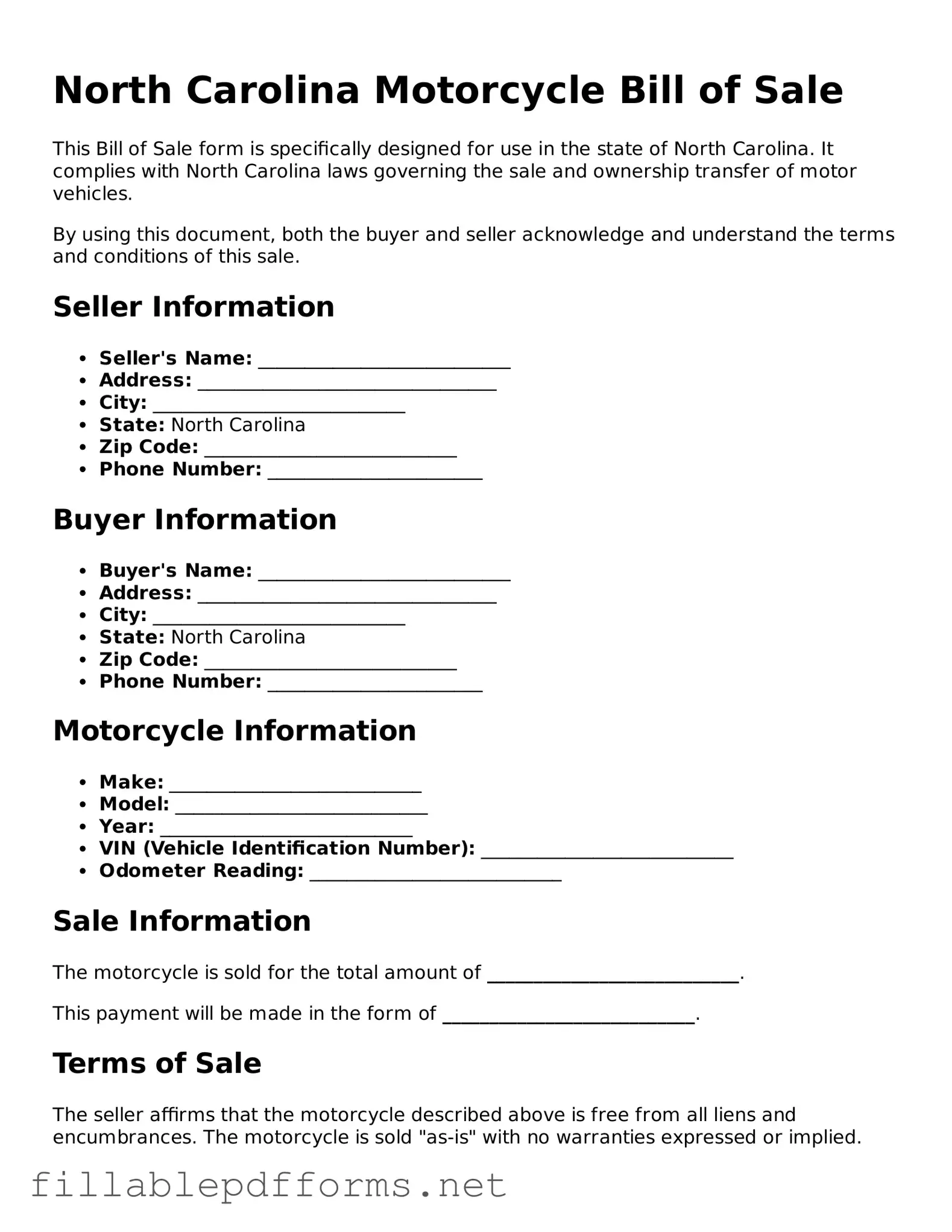Attorney-Verified Motorcycle Bill of Sale Form for North Carolina State
A North Carolina Motorcycle Bill of Sale form is a legal document that records the transfer of ownership of a motorcycle between a seller and a buyer. This form serves as proof of the transaction and includes essential details such as the motorcycle's make, model, and Vehicle Identification Number (VIN). Having a properly completed bill of sale is crucial for both parties, as it can simplify the registration process and provide protection in case of disputes.
Launch Editor Here

Attorney-Verified Motorcycle Bill of Sale Form for North Carolina State
Launch Editor Here

Launch Editor Here
or
▼ Motorcycle Bill of Sale PDF
Almost there — finish the form
Complete Motorcycle Bill of Sale online fast — no printing, no scanning.